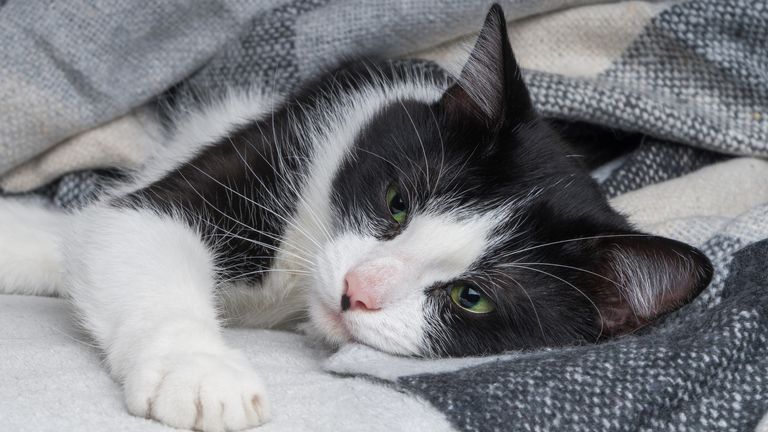Cat owners could face a fine of up to £500 if they fail to microchip their pet under a law coming into force on 10 June.
There are more than nine million pet cats in England - but as many as 2.3 million are unchipped.
Microchips mean lost, stray or stolen cats can be reunited with their owners.
The government is introducing new rules to make microchipping compulsory in England.
Here is what you need to know.
What do cat owners need to do?
Cat owners must have their pet microchipped by 10 June.
After that date, it will be a legal requirement to have cats microchipped before they reach the age of 20 weeks.
Make sure you keep a note of your cat's microchip number. If you don't have it, call your vet to see if it is on their records, or take your cat to the vet to have them scanned.
What happens if you do not microchip your cat?
If you are found to have not microchipped your cat, you will be given 21 days to get it done.
If you still have not done it after this point, you will face a fine of up to £500.

What are the rules across the UK?
The new law only applies in England.
Microchipping cats is not compulsory in Wales, Northern Ireland and Scotland - but there have been calls from animal charities for the nations to follow suit.
How much does microchipping cost?
Microchipping your cat costs between £10 and £30, according to the RSPCA.
Some animal charities and organisations also offer microchipping and may be able to do it for a reduced rate, or for free.
If you adopt a cat from a rescue centre or animal welfare charity they should be microchipped, and the organisation should give you the information you need to update the details on the microchip.
What happens if you need to update the microchip details?
You should contact your microchip database to update your details if you change your phone number or move house.
You can normally do this by phoning them or going to their website.
There may be a small fee to update your details on the database.
If you are rehoming your cat, you will need to complete a transfer of ownership document so the new owners' details will be on the microchip database.
If your cat dies you should report this to your microchip database so their files can be updated.
Read more on Sky News:
Why cat virus in Cyprus could be 'potentially catastrophic for UK'
How experts predict XL bully ban will change things in 2024
Keep up with all the latest news from the UK and around the world by following Sky News
Tap hereWhat is a microchip?
A microchip is a tiny computer chip about the size of a grain of rice. It contains a unique code that is registered on a database with the owner's contact details.
The microchip is inserted under the cat's skin, usually around the scruff of the neck, using a needle.
Once the chip is implanted, it stays there for life.
If a cat is found away from home, the microchip can be scanned so the owner can be contacted.
Does the microchipping rule apply to all cats?
Cats that have little or no human contact will not need to be microchipped.
This includes farm, feral and community cats.
Disclaimer: The copyright of this article belongs to the original author. Reposting this article is solely for the purpose of information dissemination and does not constitute any investment advice. If there is any infringement, please contact us immediately. We will make corrections or deletions as necessary. Thank you.



